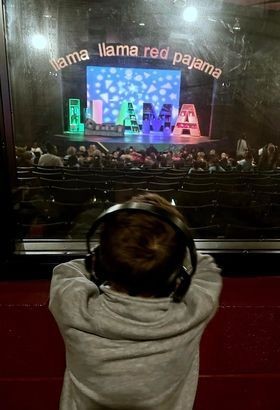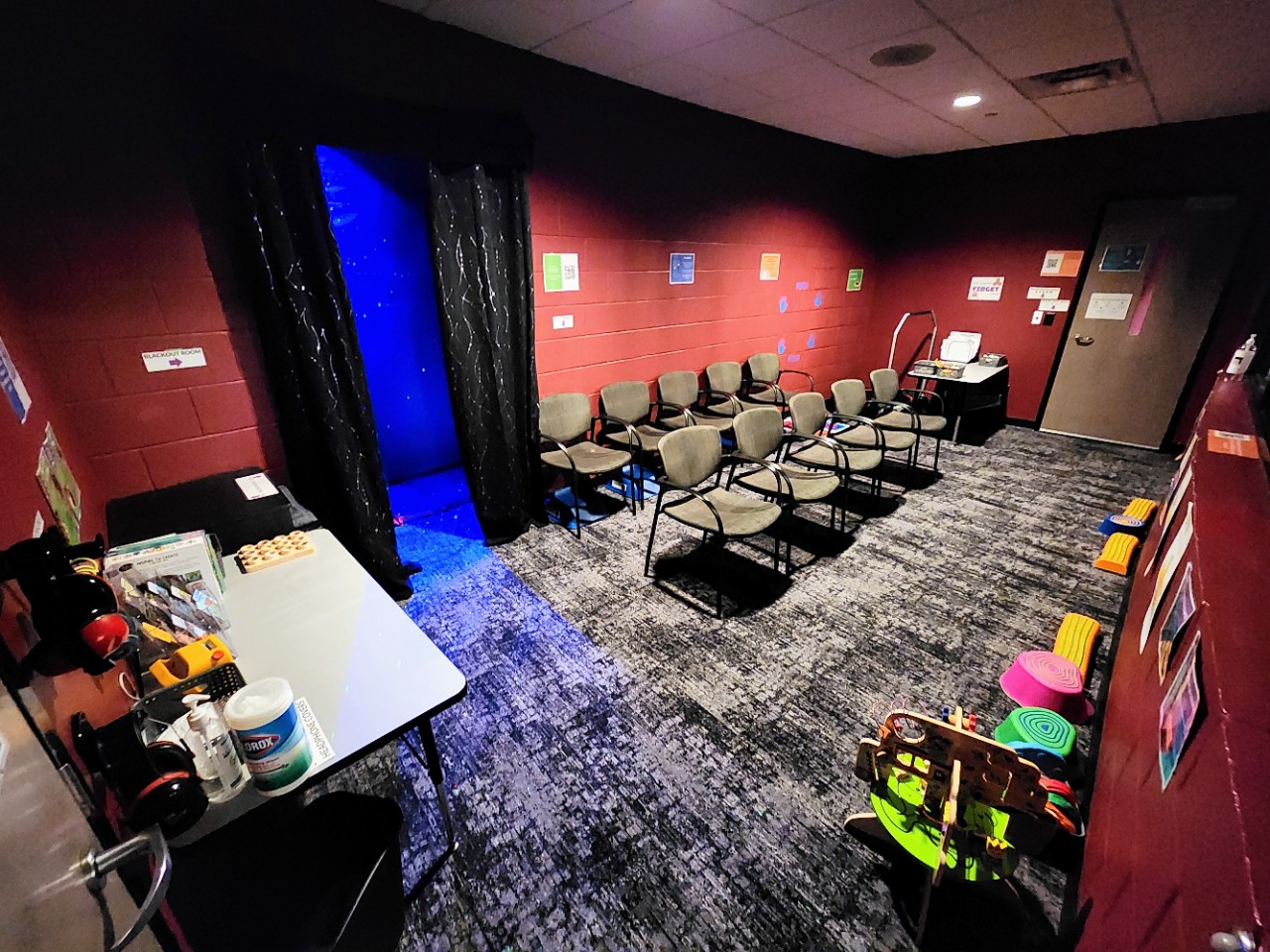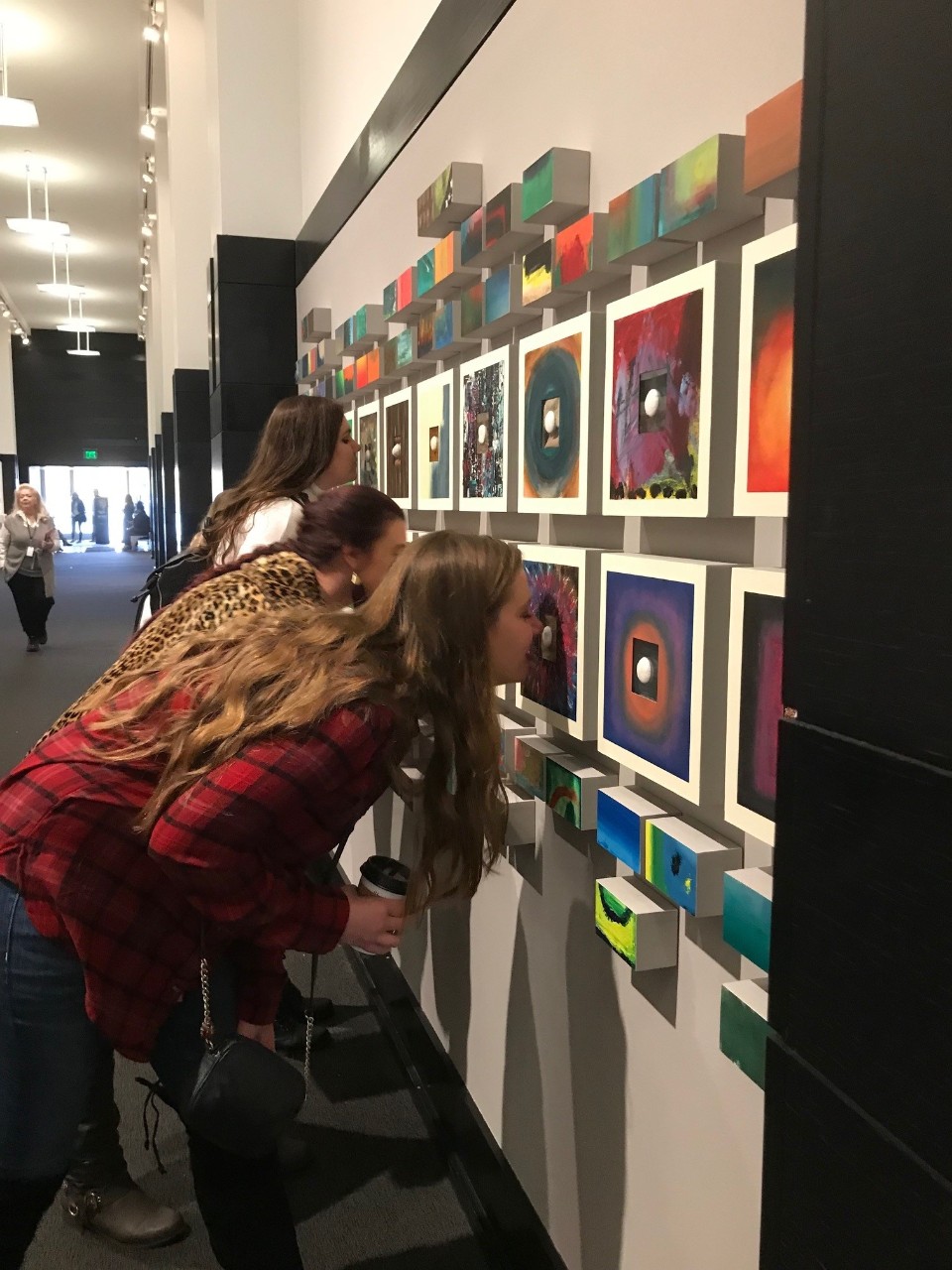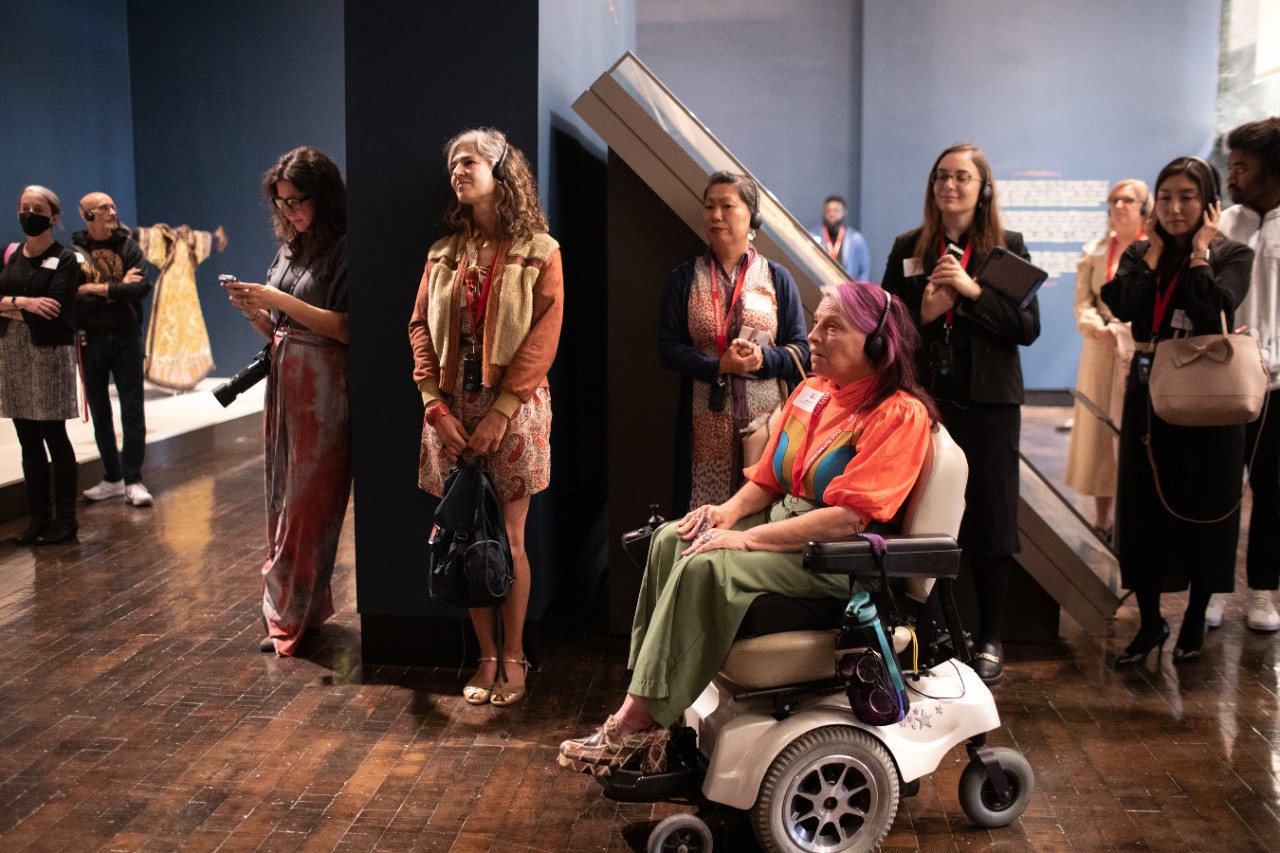Breaking Ground 113 - Designed with Me in Mind: Art that Includes Everyone
What does true inclusion look like? What does it feel like?
Our Council hears a common theme from people with disabilities and their family members. They often share some version of: “It means so much to enter a public place and know that our needs were considered. We’re used to having to work around things. We’re used to making do. It’s easy to tell when something was actually designed with us in mind.”
Those of us who live the disability experience often see the word “inclusive” used to mean “disability-specific.” But inclusion in the fullest meaning of the word is when all members of a community can participate together. True inclusion brings us together to share an experience. It fully incorporates our differences while uniting us in what we share.
The organizations we’re featuring in this section of Breaking Ground understand inclusion. These are major arts centers that are planning for the experiences of people with disabilities in programming for the full community. They went beyond checking a box or doing the minimum. They asked: “How can we make sure that people with disabilities can fully participate in what we’re offering? What barriers can we remove? How can we make this easy and fun for everyone?”
We applaud this approach. After all: where better for inclusion to be the norm than the arts, where we explore the endless variety of what it means to be human?

Nashville Children’s Theatre: Every Child Belongs Here
By Rachael Jenkins and Colin Peterson
Every child belongs here. This belief is central to the vision of Nashville Children’s Theatre (NCT). NCT understands that some families hesitate to bring their family members to live theatre without knowing how they will react or if they will be accepted. Through collaboration with community partners, NCT has worked to create a welcoming, accessible, and inclusive space for all young people and their families in Middle Tennessee. NCT continues to learn and grow its inclusion practices, such as:
- Social stories to help prepare children – especially those who are neurodivergent – for their NCT experience.
- Assistive listening devices for amplified, live sound feed of productions.
- Accommodations for mobility and physical disabilities.
- set American Sign Language performances.
- Inclusion training for all education staff.
(Learn more about The NCT Drama School’s teaching philosophy and inclusion tools here.)
NCT’s brand-new Sensory Room, funded by the Tennessee Arts Commission, is located at the back of NCT’s main auditorium. The room allows patrons to see and hear the performance while accessing tools to help self-regulate. This room ensures that all performances at NCT are sensory friendly. It also provides a space for students in the NCT Drama School to regulate their minds and bodies as needed. Tools include:
- weighted blankets;
- a blackout room with soothing lights;
- dials to adjust sound and light levels for enjoying the performance;
- tactile sensory pads;
- an adult-graded trampoline;
- and much more.
For the full list, visit https://nashvillechildrenstheatre.org/edi-policies/.
NCT also offers Neuro-Inclusive Performances, which are designed to be a safe and accepting environment where patrons with disabilities or sensory sensitivities are free to speak and move in reaction to the story being told onstage. During the performance, a sensory guide will raise a glow wand when something abrupt is about to occur. NCT offers a discounted rate to the disability community for Neuro-Inclusive Performances. In addition, free “Try It Again” passes are available for patrons who may need to reschedule to a different performance date of the same show. (To sign up for more information on Neuro-Inclusive Performances at NCT and to access the discount, visit https://bit.ly/NCTInfo.
NCT continues to hear from the schools and families about the positive impact of its accessibility and inclusion supports. One recent NCT patron told us:
“Last week, my son’s kindergarten class came to the theater for a field trip. I was a little nervous about it because my son has autism. Sitting still, large crowds, and noise very easily overwhelm and overstimulate him. A few days prior to the trip, I started looking at your website and was blown away. Not only was there a Sensory Room, there was also a detailed social story so we could prepare for the day! I honestly started to tear up a little because you have no idea how much these means to families like mine. Without these accommodations, my child would not have been able to enjoy the play. I guarantee we would have been either pacing the lobby or sitting in our car. Instead, we got to spend the morning with several other children from other schools in the Sensory Room. They all laughed, played, danced, and enjoyed the show. It was beautiful. Thank you, thank you, thank you for being inclusive and amazing. We will definitely be back, and I will definitely be telling everyone I know about our wonderful experience.”
As NCT continues to grow its inclusive programming, the organization hopes to reach more families in Middle Tennessee and to make sure every child feels welcomed, seen, heard, and celebrated. NCT aims to be a safe and brave space for everyone in the community to flourish.
NCT is a founding member of The All-Access Inclusion Network (AAIN), a community network of arts, education, athletic, and entertainment organizations led by the Vanderbilt Kennedy Center’s Treatment and Research Institute on Autism Spectrum Disorders (TRIAD). The network is focused on true inclusion for neurodivergent individuals: creating meaningful experiences and opportunities to belong through participation in programs and representation within organizations. The network works together to create supports, provide staff training, and recommend research-based best practices for inclusion.
For more information, please visit https://nashvillechildrenstheatre.org/edi-policies/ or https://vkc.vumc.org/vkc/triad/cei-AAIN/
Rachael Jenkins is an Educational Consultant with the Treatment and Research Institute on Autism Spectrum Disorders (TRIAD). Rachael has been part of the All-Access Inclusion Network [AAIN] since 2021.
Colin Peterson, NCT Education Director, has worked with youth of all ages and devised, scripted, and created curriculum to support student growth and instill empathy for over 25 years.


Community Collaboration is Key to the Frist Art Museum’s Accessibility
By Buddy Kite
From the very first conversations about opening a visual arts center in downtown Nashville in the mid-90s, the Frist’s founders were focused on making the institution a cultural hub that would be accessible to everyone. The mission and vision was to:
- bring to Middle Tennessee the greatest art in the world,
- be a place of education and inspiration,
- to inspire people through art to look at their world in new ways,
- and most importantly, to be welcoming to all.
As the architects began to renovate the historic building—Nashville’s former main post office—one of the first calls was to the Tennessee Disability Coalition.
At the other end of the line was Donna DeStefano, who immediately accepted the request for assistance in meeting the needs of guests with a variety of disabilities. Representatives from other disability groups joined the effort, including:
- the late Floyd Stewart and Sofia Maneschi of the Center for Independent Living of Middle Tennessee (now Empower Tennessee)
- The League of Deaf and Hard of Hearing (now Bridges for the Deaf and Hard of Hearing)
- Easter Seals
- Four-by-Two Guide Dog Users of Middle TN
- Tennessee Council on Developmental Disabilities
These groups together designed a training program to educate the Frist staff and volunteers in how to accommodate people of all abilities. The heart of the program: Weave accessibility seamlessly into the operation of the museum and into the consciousness of every team member. Training of staff and volunteers began prior to the museum’s opening and continues to this day.
Physical accessibility was top of mind during the renovation. DeStefano’s ad-hoc advisory team made many on-site walkthrough visits over the years. They provided consultation about ramps, accessible parking, digital accessibility, wheelchairs, and walkers. But of equal importance was an emphasis on other forms of accessibility related to age, socio-economic status, emotional sensitivity, cultural background, and intellectual function.
The Frist offers programs designed for specific groups, such as “Making Memories: A Dementia Social Engagement Program,” presented in partnership with the Alzheimer’s Association, Tennessee Chapter. The Frist staff also makes it a regular practice to think critically about ways to present art and programs in an accessible way for whoever may enter the building on any given day. During exhibition launch meetings, common topics for discussion include:
- in-gallery seating options,
- high-contrast and large-type materials,
- spaces for reflection,
- multisensory carts,
- and when appropriate, the assembly of community advisors to assist with culturally sensitive interpretation and programs.
For more than 20 years, Bridges, Empower Tennessee, the Tennessee Disability Coalition, and the Nashville Public Library have helped the Frist with communication aids such as:
- ASL interpretation services,
- assistive listening devices,
- Braille materials,
- and testing the Frist’s new website in 2020.
The Frist’s communications department relies on Alicia Searcy, fashion blogger and co-founder and executive director of the nonprofit Fashion is for Every Body, for critical feedback and informal consultation. Searcy and her husband, Clint, are featured in a video on the accessibility page of museum’s website. Alicia also sits on the museum’s marketing council, where she provides vital perspectives, innovative ideas, and promotional support.
In 2019, the Frist was the first recipient of Empower Tennessee’s first Access Music City Business Champion Award. While such awards are deeply appreciated, the Frist staff understands that with ever-changing technology, construction practices, and awareness levels, the work toward making their museum more accessible is perpetual. It is an opportunity they enthusiastically embrace.
Learn more about accessibility at the Frist at FristArtMuseum.org/Accessibility.

Museums for All Program Increases Economic Accessibility
The Frist and 7 other Tennessee museums participate in Museums for All. Museums for All is a national program that offers free or reduced admission for those receiving food assistance.
The program is designed to make people of all backgrounds feel welcome at cultural institutions and encourage them to visit regularly.
Guests simply need to present their SNAP EBT card (Supplemental Nutrition Assistance Program Electronic Benefit Transfer) to gain access to more than 1,000 museums throughout the United States. At the Frist, each EBT card admits four adults at a cost of $3 per person. (Guests 18 and under are always admitted free of charge.)
Tennessee’s participating museums are:
- Adventure Science Center (Nashville, TN)
- Amuse’um Children’s Museum (Columbia, TN)
- The Blues Foundation’s Blues Hall of Fame Museum (Memphis, TN)
- Children’s Museum of Oak Ridge (Oak Ridge, TN)
- Creative Discovery Museum (Chattanooga, TN)
- Customs House Museum & Cultural Center (Clarksville, TN)
- Frist Art Museum (Nashville, TN)
- Hunter Museum of American Art (Chattanooga, TN)
Find a complete national list of participating organizations at museums4all.org.